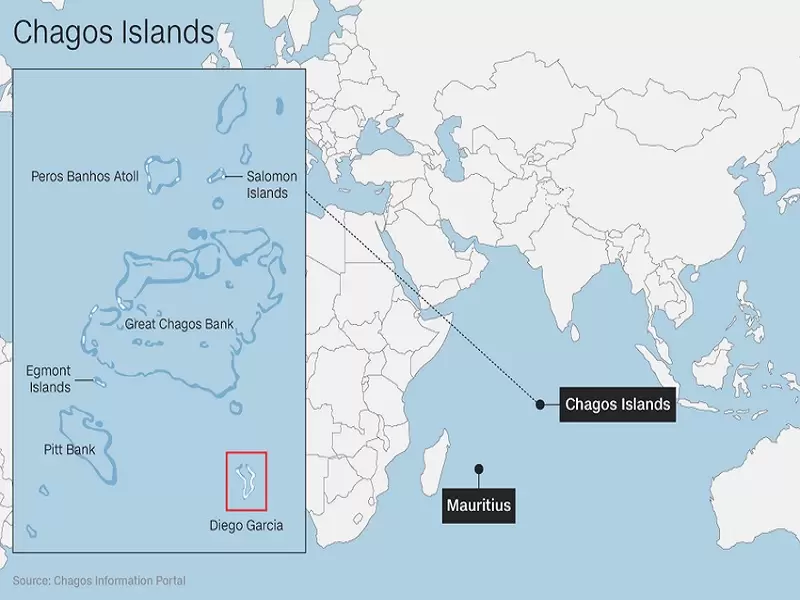The UK announced late last week that it reached a compromise with Mauritius on the status of the disputed Chagos Islands, which the British bifurcated from their former colony prior to its independence in order to perpetuate their occupation of what became known as the “British Indian Ocean Territory”. Its island of Diego Garcia is integral to maintaining the Anglo-American Axis’ strategic position in the Indian Ocean and fears about its future status were responsible for delaying a resolution till now.
The agreement will grant Mauritius sovereignty over the Chagos Islands in exchange for that island nation leasing Diego Garcia to the UK for the next 99 years in order to preserve its base there. The locals who were ethnically cleansed can return to all the other islands except for that one, and they’ll receive financial support for doing this too, as will Mauritius via “the establishment of a transformational infrastructure partnership.” This was the most realistic deal possible given the circumstances.
There was no way that Mauritius could forcibly expel the Anglo-American Axis from these disputed islands, and nobody was going to provide meaningful support for them to do so either. The most that could have been expected was political assistance in international fora. It turns out that India played the largest role in this regard as reported by its national media. Delhi consistently championed Mauritius’ cause and was even recognized for its efforts in the last part of the UK’s official statement on this matter.
This outcome benefits all parties: the Anglo-American Axis will continue using Diego Garcia; Mauritius obtained sovereignty over the land that was arbitrarily separated from it by the UK prior to independence; and India reaffirmed its role as the Voice of the Global South by helping its ally. Moreover, historical justice will finally be served, while the Anglo-American Axis doesn’t have to worry about this issue harming their reputation any longer after it was highlighted to expose their hypocrisy.
By finally resolving this decades-long issue, the Anglo-American Axis hopes to improve its reputation in the Global South to a degree by showing flexibility in the face of rising anti-imperialist sentiments. They might also have been influenced by France’s experience in its former “sphere of influence” across the Sahel, which it decisively lost over the past few years after failing to adapt to changing trends. France stubbornly refused to reform the model of relations with its former colonies and paid dearly for it.
The Anglo-American Axis never faced any risk of forcibly losing Diego Garcia as was explained, but the reputational costs of continuing to cling to that island in the event that Mauritius was able to rally more of the Global South behind its cause (especially Russian and Chinese media) were deemed unacceptable. They therefore pragmatically decided to resolve everything in the way that was ultimately agreed upon by transferring sovereignty to that island nation in exchange for being able to lease the base for 99 years.
France could learn from their example amidst rising anti-imperialist sentiment within its neocolonial territories like New Caledonia and Martinique. Political reforms are long overdue and their continued delay, not to mention backsliding with regard to the first-mentioned territory, risks provoking more unrest that could spiral into a crisis. It might thus be better for France to cut a deal for transitioning to independence in exchange for obtaining preferential resource access and preserving its military bases.
